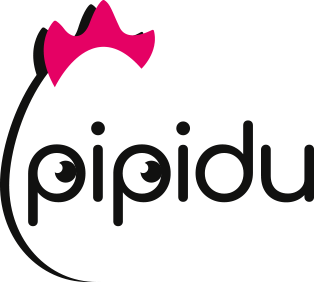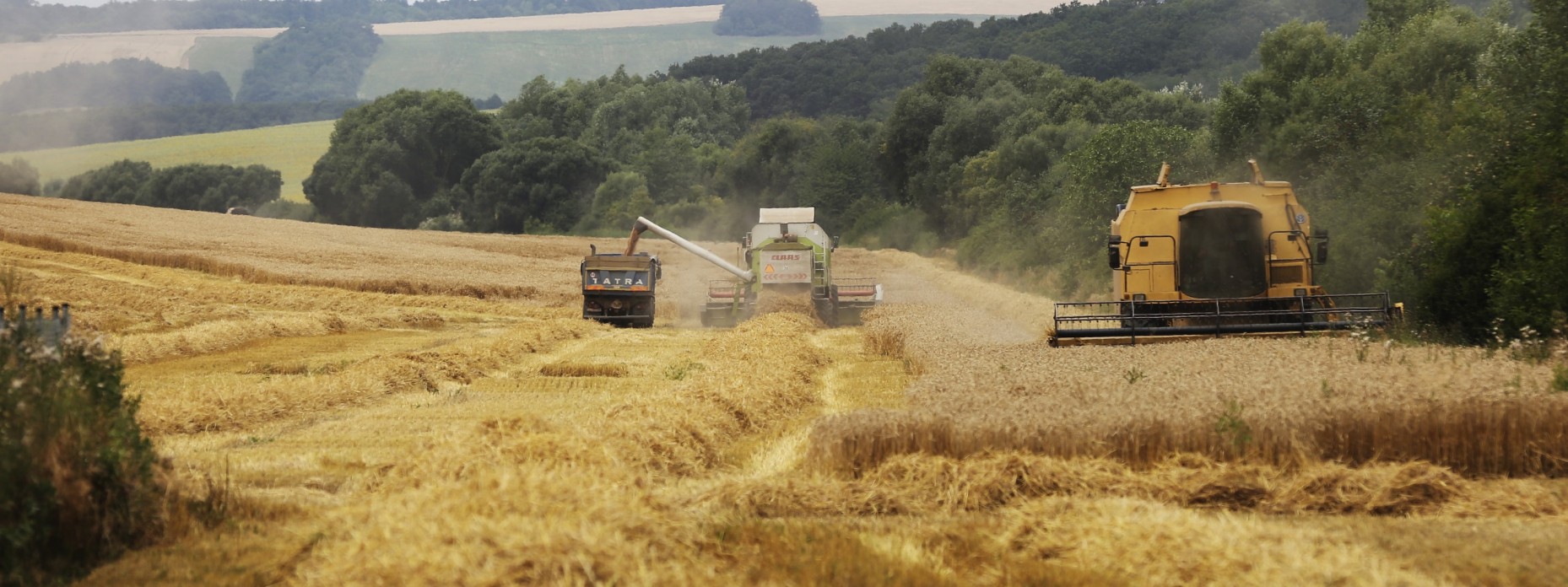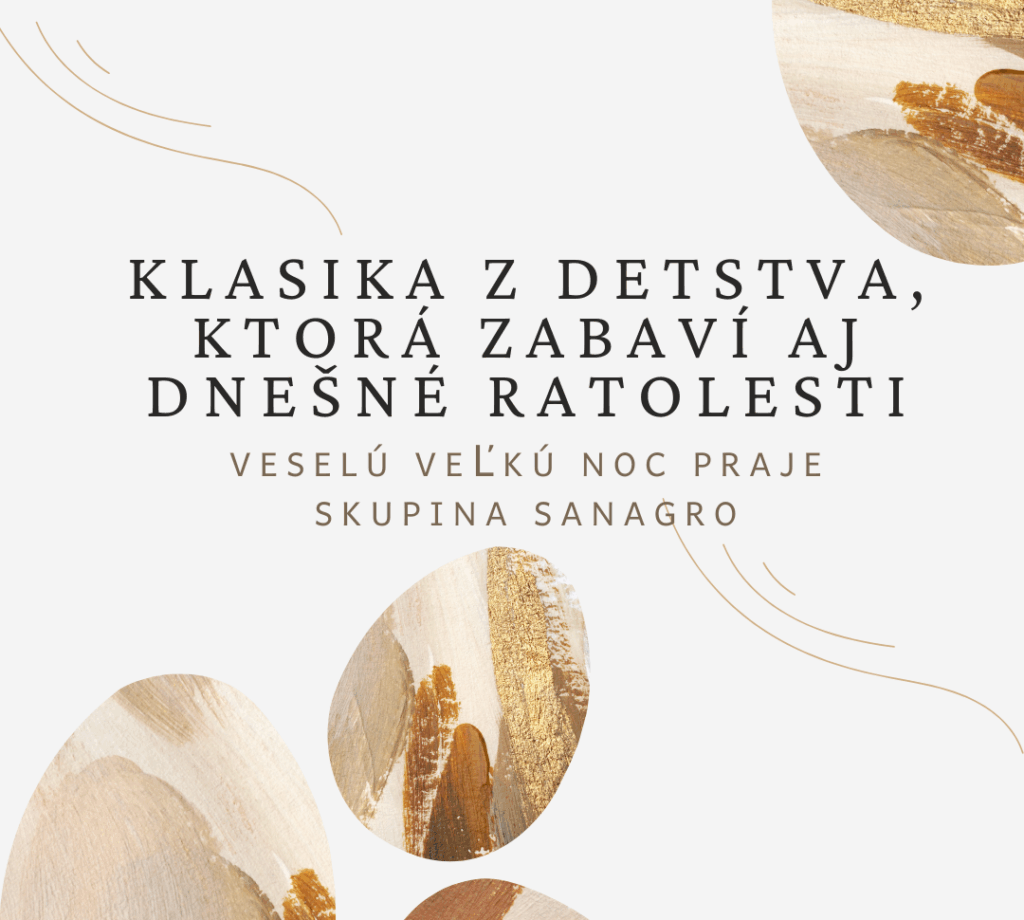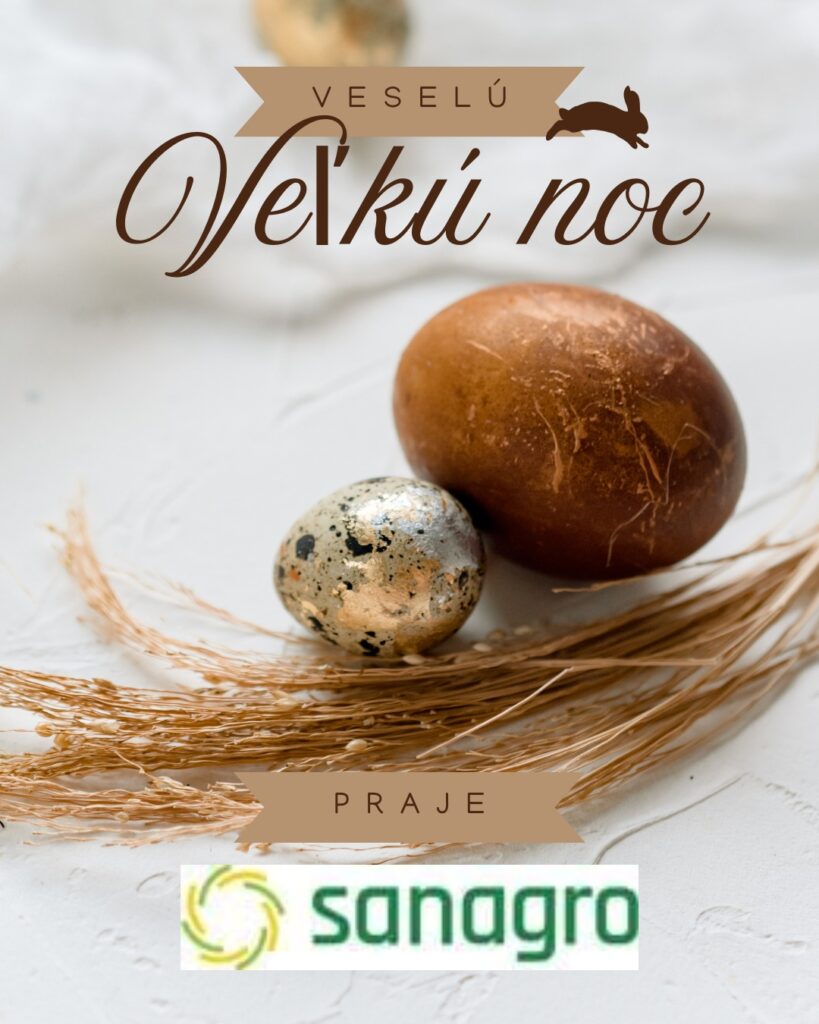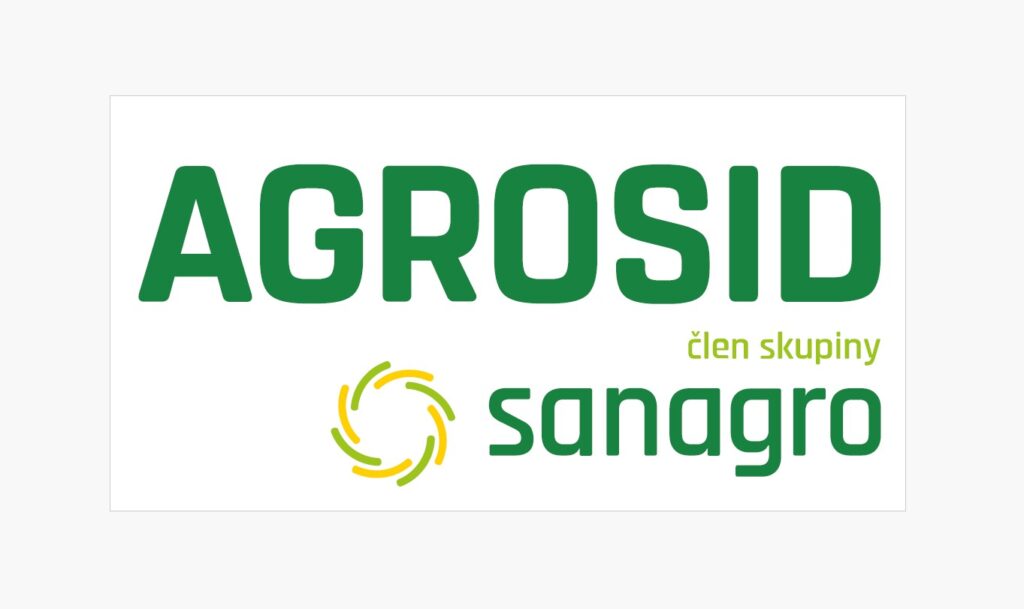The Hlohovec farm was established just after the revolution and quickly crossed the borders of the region. However, it was dragged down by disputes, which had to be ended only by the new owner, the SANAGRO group.
Imagine a person who has farming in his blood since birth. This is a man whose parents and grandparents were avid farmers, and he was able to spend his entire childhood running around the meadows and fields. When it came to deciding what to study, he didn't hesitate for a moment. He chose agricultural school. And although he was tempted to work in another business at one point during his professional career, he quickly returned. As he says, the field is the best office, and no job compares to farming with all the positives and negatives it entails. Daniel Antalík, Managing Director of Food Farm, an agricultural business in Hlohovec, currently part of the SANAGRO group.
Post-revolutionary years
Food Farm was established by privatisation of state properties in Hlohovec and Dolne Trhoviste. While the farm in Hlohovec specialised in crop production, the other one in animal production. The then owners tried to revive the local farms, so in the summer of 1995 they founded Food Farm and focused on agricultural primary production. Daniel Antalík joined the company just a year later. That's why he knows it like the palm of his hand today. "I was there to set up the new structures and build the key areas of the business - crop and livestock production and viticulture," begins Daniel Antalík, adding that significant investments were made in each of these areas. Thanks to this, the newly founded company soon became a holding company that quickly crossed the borders of its region.
The company has prospered over the long term, despite the fact that agriculture has faced several challenges at different times. "First it was the post-revolutionary years associated with privatisation, when many people were convinced that even without effort they would achieve results. When their mindset changed and they realised that without work and investment it would not work, the market opened up and farmers began to be wiped out by cheap imports from abroad. Those that stayed on the market subsequently dealt with the economic crisis and reduced sales," Daniel Antalík recalls, adding that after EU accession, farmers' lives deteriorated significantly. Food Farm also had to respond to the situation and in 2006 expanded its business to include the finalisation of grape production at the Golguz winery, which was a multi-award-winning winery.
The best evidence? A functioning cooperative
Although the company has prospered in the long term, it has not avoided problems. The biggest were disputes between the former owners, which threatened the operation of the company and its employees. These culminated in 2012, when three of the five co-owners decided to sell off part of the business. The majority owner of Food Farm became the SANAGRO group, which is dedicated to the restoration of Slovak farms and for which Food Farm was the first agro company in the portfolio with a 60 per cent share.
At that time Daniel Antalík accepted the challenge of the new owner - to make Food Farm a flagship. This was a crucial step for the Slovak group, as a newcomer to the market, it needed to convince farmers and the professional public that it was serious about the renewal and development of Slovak agro.
However, after initial disputes, the group sat down with the remaining owners and came up with a proposal to resolve them. SANAGRO relinquished the Golguz winery and its associated vineyards, retaining the livestock and crop production. "This decision was certainly not an easy one, as Golguz was an award-winning brand (in 2015 and 2017 Golguz won the Winery of the Year award), it was a prestige to have it in the group. On the other hand, in the name of preserving Food Farm, it was a necessary step. It took the pressure off the company," says Daniel Antalík. Food Farm's annual sales amount to EUR 6 million, with 1 100 dairy cows on three farms and an annual production of 10.5 million litres of milk and 18 thousand tonnes of cereals per year. In terms of profitability, 2018 was one of the best years ever for Food Farm.
Improving working conditions
If there is one thing that frustrates this long-time farming manager, it is the fact that farming is extremely neglected and undervalued in this country. Paradoxically, the opposite should be the case - Western European countries should be our role models. "In Slovakia, however, the agro-sector is not a lucrative field, it does not interest young people and we have a problem finding workers," says Daniel Antalík, adding that agriculture is not governed by holidays or weekends, but by the needs of plants and animals.
"In order to be able to function normally, we also employ Ukrainians. Without employing foreigners, we would not have a chance to keep production going. Just now we need to fill 10 jobs acutely," explains Daniel Antalík. And, as he concludes, with the arrival of SANAGRO, working conditions in the company have also improved: "We have made financially demanding investments to improve working conditions, which we would probably never have realised without SANAGRO."
We also see the future of Food Farm in the cultivation of unusual crops
Daniel Antalík, CEO of Food Farm, talks not only about the next plans and investments, but also about why farmers should not give up on livestock production.
Food Farm was the first farm included in the SANAGRO portfolio. What is the state of the farm today compared to the period before the Group joined?
The most important change was the settlement of ownership relations and the settlement of pending lawsuits between the original owners. And although Food Farm gave up the Golguz winery, which was eventually retained by the original two owners, we were left with the entire agricultural portion. And we have also grown - before SANAGRO came in we farmed 5 089 hectares of arable land, today it is 6 782 hectares.
How did this happen?
Food Farm had two subsidiaries before SANAGRA's entry - Agrovia, a joint stock company that includes the farms Horné Otrokovce, Horné Trhovište and Tepličky, and PD Dolné Otrokovce. SANAGRO arranged for Food Farm to enter these farms on an ownership basis and also acquired PD Šalgovce. Together, we now farm 6 782 hectares of arable land and have 1 100 dairy cows on the three farms. We have created a strong farming group in the Hlohovec area, which also gives us better scope for more efficient use of technology or labour.
The company's revenue has been stable since 2012. What is the reason?
A lot of production is based on products with a history, which allows us to predict their sales. But the second, and from my point of view more important, fact is that we put emphasis on the economic side of production. When we see that we are not going to achieve the planned harvest, we adjust our costs in real time to achieve the set economics.
Can this always be implemented?
Of course, it cannot, but it is greatly helped by the diversification of agriculture in conjunction with livestock production. Although this is expensive and many economists would say that it is not worthwhile, it does bring some stability and a regular flow of funds to farms. Milk is sold every day, but crop production has an effect once a year.
You have just recently sold off part of the business - the Golguz winery. How will this sale affect the company's results?
In the days when Golguz was part of Food Farm, we experienced years with abundant harvests and good wine prices, which helped us economically. On the other hand, we have also invested a lot or experienced less successful years. We will feel it on the economy, but I do not think it will affect us in a major negative way.
How do you see the future of Food Farm?
Together with the SANAGRO Group, we want to continue to develop crop and livestock production. In crop production, we plan to invest in new technologies so that we can carry out all operations from planting to harvesting on time. We are also looking for new alternative crops that are not quite conventional but could bring us more added value. We have decided to do this because of changes in the climate and also in the conditions, and we want to respond to this in a directly proportional way.
What about livestock production?
In livestock production, we want to renovate and enlarge the farm in Dolný Trhoviště so that we can have 600 dairy cows there to produce milk. This is a costly investment of almost EUR 3 million in building a structure that would improve animal welfare, both ecologically and environmentally. We plan to implement it over the next three years.
Food Farm at a glance
Food Farm, based in Hlohovec, deals with both animal and vegetable production. In the livestock sector, it breeds cattle, with the main focus in livestock production being the breeding of Holstein black-legged cattle. In crop production, it grows densely sown cereals (winter wheat and spring barley), oilseeds (winter rape and sunflower), maize and perennial fodder for livestock production. It currently employs 75 people.

